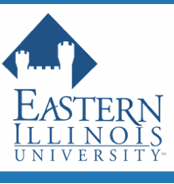Evaluation of Non-College Programs for PLA: Access, Equity, Bias
Start Date
16-10-2020 9:00 AM
End Date
16-10-2020 9:50 AM
Document Type
Presentation
Abstract
Prior Learning Assessment (PLA) is often and accurately presented as a tool for acknowledging the college-level learning experiences of adult and non-traditional students. These processes acknowledge that learning in the college classroom does not encompass all learning, and PLA offers pathways to accelerate degree completion through many forms including challenge exams, evaluation of non-college programs, and individualized assessments. Each of these has its own rigor and requirements which in turn allow students to capitalize on different facets of their experience to advance their educational pursuits. At PLA’s core is an understanding that the many constitutive practices are tools meant to improve inclusivity and equity in higher learning for vulnerable and underserved populations by acknowledging and validating learning experiences outside of the academy. The learning outcomes for this session are to help identify unintended structural biases in PLA derived from evaluation of non-college programs and to explore strategies for overcoming these biases.
Creative Commons License

This work is licensed under a Creative Commons Attribution-Noncommercial-No Derivative Works 4.0 License.
Evaluation of Non-College Programs for PLA: Access, Equity, Bias
Prior Learning Assessment (PLA) is often and accurately presented as a tool for acknowledging the college-level learning experiences of adult and non-traditional students. These processes acknowledge that learning in the college classroom does not encompass all learning, and PLA offers pathways to accelerate degree completion through many forms including challenge exams, evaluation of non-college programs, and individualized assessments. Each of these has its own rigor and requirements which in turn allow students to capitalize on different facets of their experience to advance their educational pursuits. At PLA’s core is an understanding that the many constitutive practices are tools meant to improve inclusivity and equity in higher learning for vulnerable and underserved populations by acknowledging and validating learning experiences outside of the academy. The learning outcomes for this session are to help identify unintended structural biases in PLA derived from evaluation of non-college programs and to explore strategies for overcoming these biases.





Speaker Information
Nicholas Hayes, MFA, MA
Assistant Director Office of Prior Learning Assessment, DePaul University, Chicago, IL
Joseph Chen, PhD
Director Office of Prior Learning Assessment, DePaul University, Chicago, IL
Roni Buckley, EdD
PLA Advisor Office of Prior Learning Assessment, DePaul University, Chicago, IL